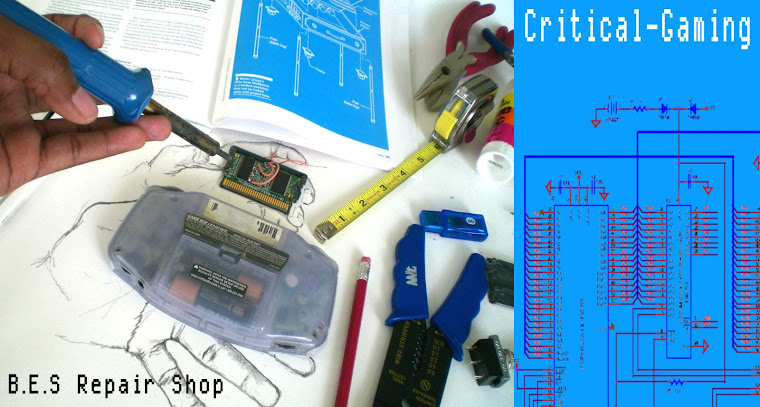Ignoring everything the developers is unaware of, what about the things they deliberately programmed in? Masahiro Sakurai has maintained his personal blog for Super Smash Brothers BRAWL since last summer. He has covered everything from items, characters, techniques, and stages for his game. Yet, even though he has revealed specific ways to use specific moves with specific characters, he admits himself that he doesn't want to get too technical. It is obvious that this particular game reaches a wide audience some of which wouldn't be interested in the technical side of games. However, the game is rated T for teen. I feel that thirteen-year-olds are old enough to handle technical information. And furthermore, what's the harm for sneaking in a few lines of it anyway.
"I’ll try not to get too technical with things, but just know that there are lots of small tricks like these for you to play around with." ~Sakurai
At the end of the day, games are complex computerized machines that have a wonderful coating of graphics filled with familiar forms to bridge the gap of communication between the bit world of computers and the human world of the real. In other words, games are high tech and we shouldn't be afraid to be more explicit when talking about them and teaching the player how to play.
The best example I have of a game that teaches how it works is Team Fortress 2. This game features a commentary mode where players can run around the multiplayer maps activating commentary audio files from the developers. These audio blurbs talk about everything from lighting and shadows, character classes, the forms that fit their functions, level lay out, and more invisible things like how the respawning system works and why they took out elements from the previous game in the series. Not only was this information highly informative, but it was entertaining, it helped to reduced the high amount of information that is needed to begin playing the game, and I was still in complete control over what I wanted to listen to. If I were a gamer that didn't like technical talk, I could simply avoid listening to those commentary files. As a game designer, this kind of commentary is gold. Just hearing the developers talk about the tactics and strategies they designed into the game helped me organize the concepts in my own mind. My sister, after hearing the commentary, began playing better and smarter in Call of Duty 4. Though the games are both FPSs, they are very different. Regardless, from listening to the commentary she now has a much clearer concept of high-ground and low-ground and their advantages, which keeps her alive longer in COD4.
Just coming out straight and telling the player how to play can't be a bad thing when you don't force the player through the information. Even the "Try This" videos in Donkey Kong Jungle Beat do wonders for giving the player just enough inspiration and curiosity to expand the way they play the game.
If you're developing a game out there, don't be like that mean kid who, when he finally gives you a turn to play the game, doesn't tell you any of the controls and proceeds to immediately beat you down. And at the same time, don't be like the hard cover strategy guide that turns a game into a reading comprehension exercise.
Find the balance. Find the way to make your game a secret to everybody.




No comments:
Post a Comment